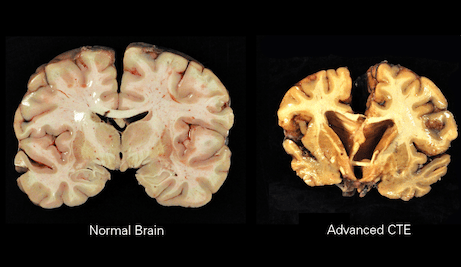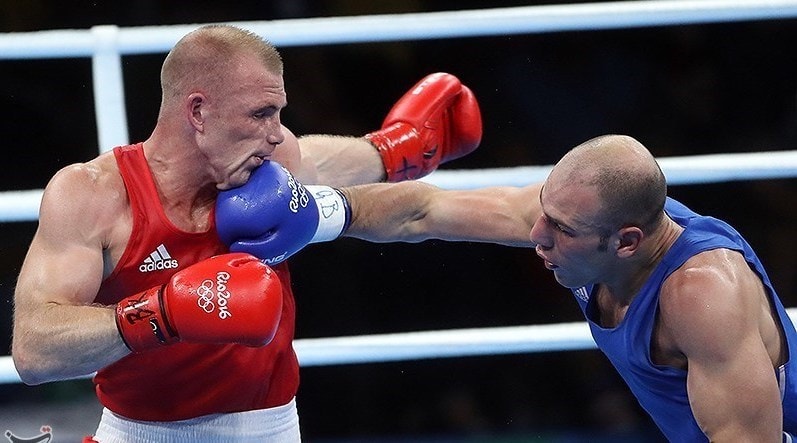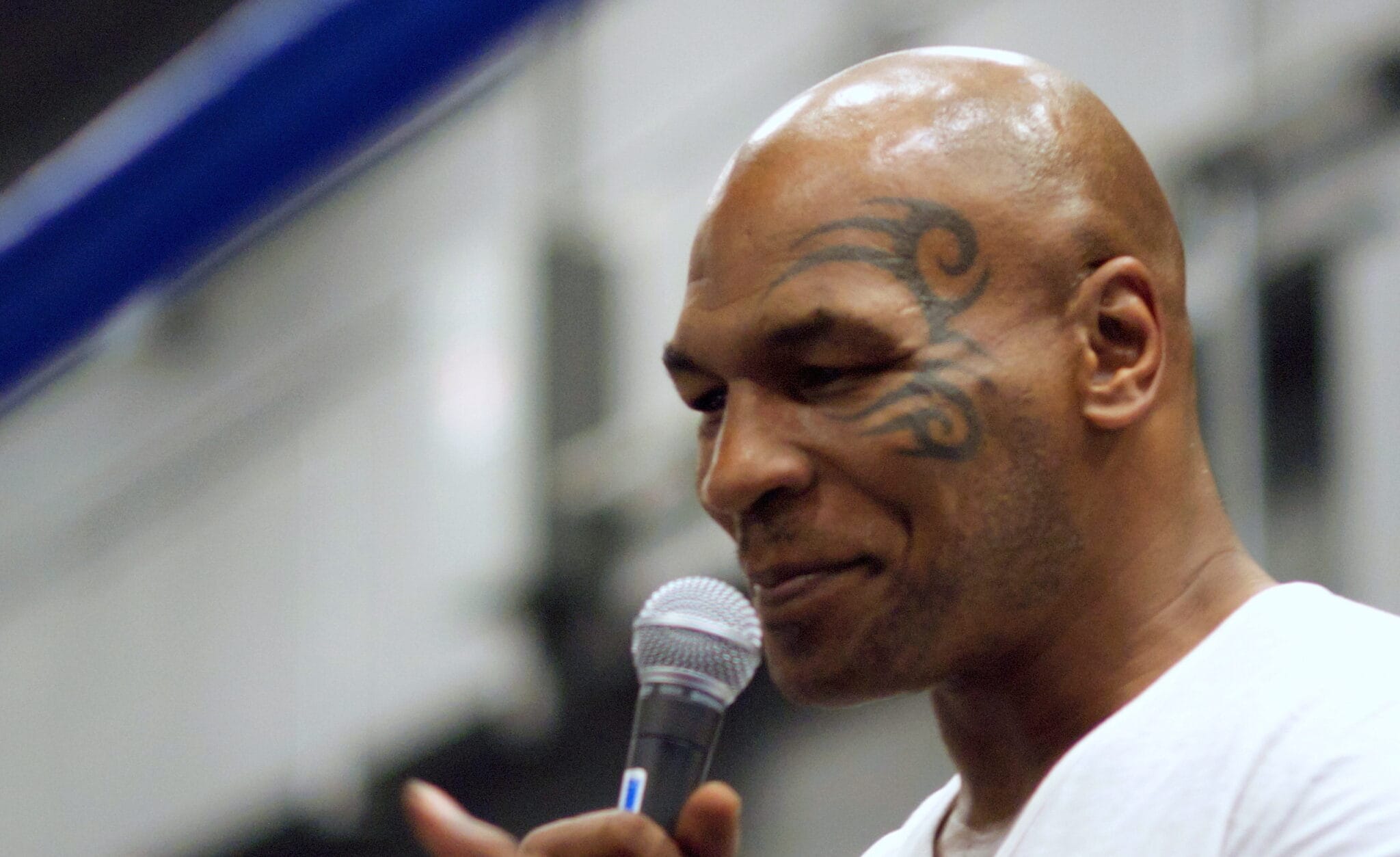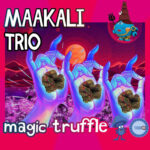However, despite only being in the boxing bizniz for around 2 years, Paul is already describing how the negative side-effects caused by a career of being beaten-up have begun to affect his life.
Advised By Doctors To Quit
Paul, who previously had sustained injuries from playing American football, told Graham Bensinger in an interview;
“I got my brain scanned right before I started boxing. The doctor told me there’s lack of blood flow from the concussions I had playing football to certain areas on my brain
…One of them I believe is the frontal lobe which is partial for memory and so on. After my first year of boxing, I went back and it was worse.”
Paul’s physician understandably advised him to quit the sport for his health;
“That’s all they can advise as a doctor. I think before it was affecting me at a rapid pace because I never took it easy.”
A Serious Disease
However, for many whose profession is contact sport it’s not that easy. And unfortunately, Paul’s experience is a very common one for those engaged in these kinds of careers, or even just hobbies. The condition he experiences is called chronic traumatic encephalopathy (CTE). It is a progressive degenerative disease — which means it gets worse over time. It affects the brains of those who have suffered concussion and traumatic brain injury repeatedly. Of the 1.7 to 3.8 million yearly sufferers of traumatic brain injury in the U.S, around 10% is from sports or recreational activities. For children and teenagers this figure rises to 21%.

Symptoms of CTE can include:
- Difficulty thinking – e.g. problems with decision making
- Short-term memory loss – this can include forgetting names or other previously known information, and asking the same questions over again.
- Volatile mood – such as quick mood swings, anxiety, frustration.
- Disorientation – confusion, such as getting lost, or not knowing what time of day it is.
As the condition worsens, one might experience:
- Serious memory problems
- Slurred speech (dysarthria)
- ‘Parkinsonism’ – like the typical symptoms of Parkinson’s disease, such as tremor, slow movement and muscle stiffness
- Problems eating or swallowing (dysphagia) – in extreme cases.
“Detrimental To Your Long Term Health”
The American Association of Neurological Surgeons emphasises the dangers of boxing on their website;
“Over time, professional and amateur boxers can suffer permanent brain damage. The force of a professional boxer’s fist is equivalent to being hit with a 13-pound bowling ball traveling 20 miles per hour, or about 52 times the force of gravity… Recent studies have shown that most professional boxers (even those without symptoms) have some degree of brain damage.”

That Paul is already experiencing these negative symptoms is hardly a surprise, when you really consider the violence of the sport, stated above.
He acknowledges;
“You’re doing something that is detrimental to your long term health.
“I notice it in conversations with my girlfriends or friends, not remembering something that I should be able to remember that happened a couple of days ago.
“Sometimes in my speech, there’s like every 100th or 200th word I’ll mess up or like slur, which I didn’t do that before.”
Many People Are Speaking Out
And, he is not the only public voice garnering attention for coming out as a CTE sufferer. Recently boxing legend ‘Iron’ Mike Tyson has revealed his struggles with the symptoms of traumatic brain injury. UFC president Dana White has been raising the alarm too.
And, they all seem to have come to the same conclusion in order to make changes to this grim situation.
Magic Mushrooms!

Yes, as we previously covered in our article that explored the UFC’s research into healing their fighters, psilocybin, the psychedelic compound in magic mushrooms (and truffles!), seems to be able to deliver the knockout blow when it comes to treating CTE.
With studies taking place into the effects of psychedelics on traumatic brain injury at the likes of Johns Hopkins Centre for Psychedelic and Consciousness Research, and Mike Tyson munching on magic mushrooms live on podcasts, it seems operation Shroom is full steam ahead.
Tyson is even investing in a company, Wesana Health, that will study the effects of psychedelics on traumatic brain injury. He is emphatic on how much his situation has improved since exploring psychedelics such as psilocybin and toad;
“To think where I was – almost suicidal – to this now. Isn’t life a trip, man? It’s amazing medicine, and people don’t look at it from that perspective.”

Jake Paul is Also a Shroom Convert
And, the very podcast on which Tyson muched down on a handful of shrooms, was ‘Impaulsive’ — the podcast hosted by Logan Paul, AKA Jake Paul’s brother! It is no coincidence that Jake Paul sought solace in shrooms after that — he explained;
“I’ve talked to tons and tons of people about it and there’s new research and science to combat against it, things like psychedelics and toad…It sounds crazy but it can actually increase the neural activity in your brain and open up new pathways, I’ve experimented with that and it’s definitely helped.”
Jake Paul and Tyson were slated to face up to each other in an upcoming exhibition bout in Las Vegas — a young hotshot vs. a veteran 30 years his senior. However, Tyson has recently put the kibosh on this plan, stating it was only ever “word of mouth.’
What’s the betting these shroom-loving fellas would have just hugged it out anyway? Psilocybin is noted to make you kinder and more open… could be just what they need…

A New Dawn For Sufferers of CTE
Joking aside, this also marks a real hope for those who also suffer CTE that has nothing to do with sports or recreation. Sufferers of CTE also include those who have suffered chronic violence, serious incidents such as car accidents, and military veterans.
With the message of this new possibility for healing getting out there, it’s a new dawn for all sufferers of this debilitating condition.






